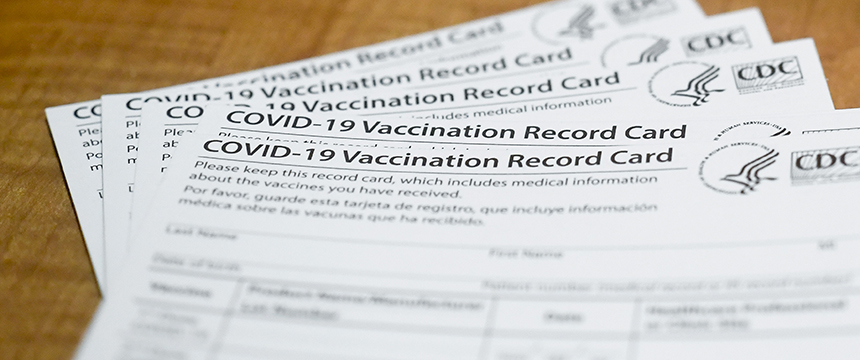Religious Accommodation Challenges to COVID-19 Vaccination Policies — Lessons for Employers from Preliminary Court Decisions

Whether to protect the health and safety of their workplaces, to comply with governmental requirements when applicable, or a combination of the two, many employers have adopted mandatory COVID-19 vaccination policies. Faced with the consequences of refusing to be vaccinated, a number of workers are now filing religious discrimination lawsuits against their employers for failure to accommodate their anti-vaccine religious beliefs. Court decisions from the preliminary stages of these cases provide key lessons on navigating the religious accommodation process, whether in the context of vaccination policies or otherwise.
Where are the Courts Landing on the Religious Accommodation Issue?
Under Title VII and many analogous state laws, an employer must provide religious accommodations to an employee with a sincerely held religious belief or practice that conflicts with an employment requirement — unless an accommodation would impose an undue hardship on the employer. (Some states go further and provide exemptions for personal beliefs or personal conscience.) An accommodation is an undue hardship if it would impose more than a de minimis cost or burden on the employer. This is a less rigorous standard than undue hardship under the Americans with Disabilities Act (ADA), which requires showing the accommodation would impose a significant difficulty or expense.
In these early COVID-19 vaccination religious accommodation decisions, employees have sought preliminary injunctions to temporarily stop employers from enforcing mandatory COVID-19 vaccination policies while litigation is pending. Courts so far have been nearly unanimous in denying preliminary injunctions, concluding that the employers will likely prevail on the merits of the cases.
The first key issue is whether the employee can prove religious discrimination, which requires showing that a particular belief or practice is religious. While some courts have found that a particular opposition to the COVID-19 vaccine is religious, others found that a similar opposition is merely personal. Whether opposing the vaccine is part of an employee’s sincerely held religious belief is a highly fact-dependent analysis. In many of the cases, however, this analysis is not necessary because the employers did not challenge the beliefs at issue.
Regardless of whether the employee can prove religious discrimination, the cases largely turn on whether the workers’ requested accommodations would likely impose an undue hardship on employers. So far, courts generally agree that they do.
These proposed accommodations typically include mandatory masking, mandatory testing, and remote work. According to the courts, mandatory masking and testing of unvaccinated employees would require employers to spend funds on monitoring and testing, and would expose other employees and customers to a higher risk of transmission. Remote work, particularly for customer-facing roles, would require employers to alter their operations.
Best Practices for Addressing Religious Accommodation Requests
It is important to remember that these cases are in the preliminary stages, and the final decisions in the later stages of litigation may differ. Additionally, most of these early cases involve either airline employees or health care workers, where remote work is likely not an option and where the risk of transmission is particularly high. It is unclear at this early stage whether courts will find the proposed accommodations impose an undue hardship on employers in other industries. Courts could find that masking, testing, and remote work may be implemented in other industries more easily and with less risk of transmission — and therefore impose only a minimal burden or cost to employers in those settings. Nevertheless, these cases provide important reminders of best practices when it comes to navigating religious accommodations, particularly regarding mandatory vaccination policies:
- Develop a consistent COVID-19 vaccination policy. While employers are not required to provide a religious accommodation to each employee who requests one, employers should apply mandatory COVID-19 vaccination policies consistently and evenly to all accommodation requests. For example, an employer should be careful about requesting backup documentation from one employee and not another.
- Communicate the policy and the process for requesting an accommodation to all employees. Be sure that employees are notified in advance of any change in requirements and are informed of the process by which they can seek an accommodation. A common request form can be used.
- Consider accommodation requests on an individualized basis. Employers should consider each religious accommodation request based on the specific context of the request. The simplest approach is to assume a religious accommodation request is based on a sincerely held belief or practice. The employer may, however, request limited explanation or evidence of how the religious belief or practice conflicts with the COVID-19 vaccination policy.
- The case-by-case analysis should also be applied to whether the accommodation request would impose an undue hardship on the employer. According to the EEOC, the employer may consider the type of workplace, the nature of the employees’ duties, the location in which the employee must or can perform their duties, the number of employees who are fully vaccinated, how many employees and nonemployees can enter the workplace, the number of employees who will need a particular accommodation, and whether the employee has close contact with other employees or members of the public.
- The employer may also consider the cumulative cost or burden of granting accommodations to other employees. For example, if granting work-from-home requests ultimately meant no one would be around to serve a public-facing position, this is a factor that may be taken into account, even if allowing one employee to do so would not be particularly burdensome.
- Document all requests for religious accommodation. Be sure to maintain records of the accommodation requests, supporting documentation, communications with the employees, and the internal review process. An employer that denies a religious accommodation request should be prepared to demonstrate how the requested accommodation would impose an undue hardship.
Remember, an employer does not need to provide the employee’s preferred accommodation if there is more than one reasonable accommodation — and need not provide any accommodation at all if doing so would impose more than a minimal cost or burden on the employer.

